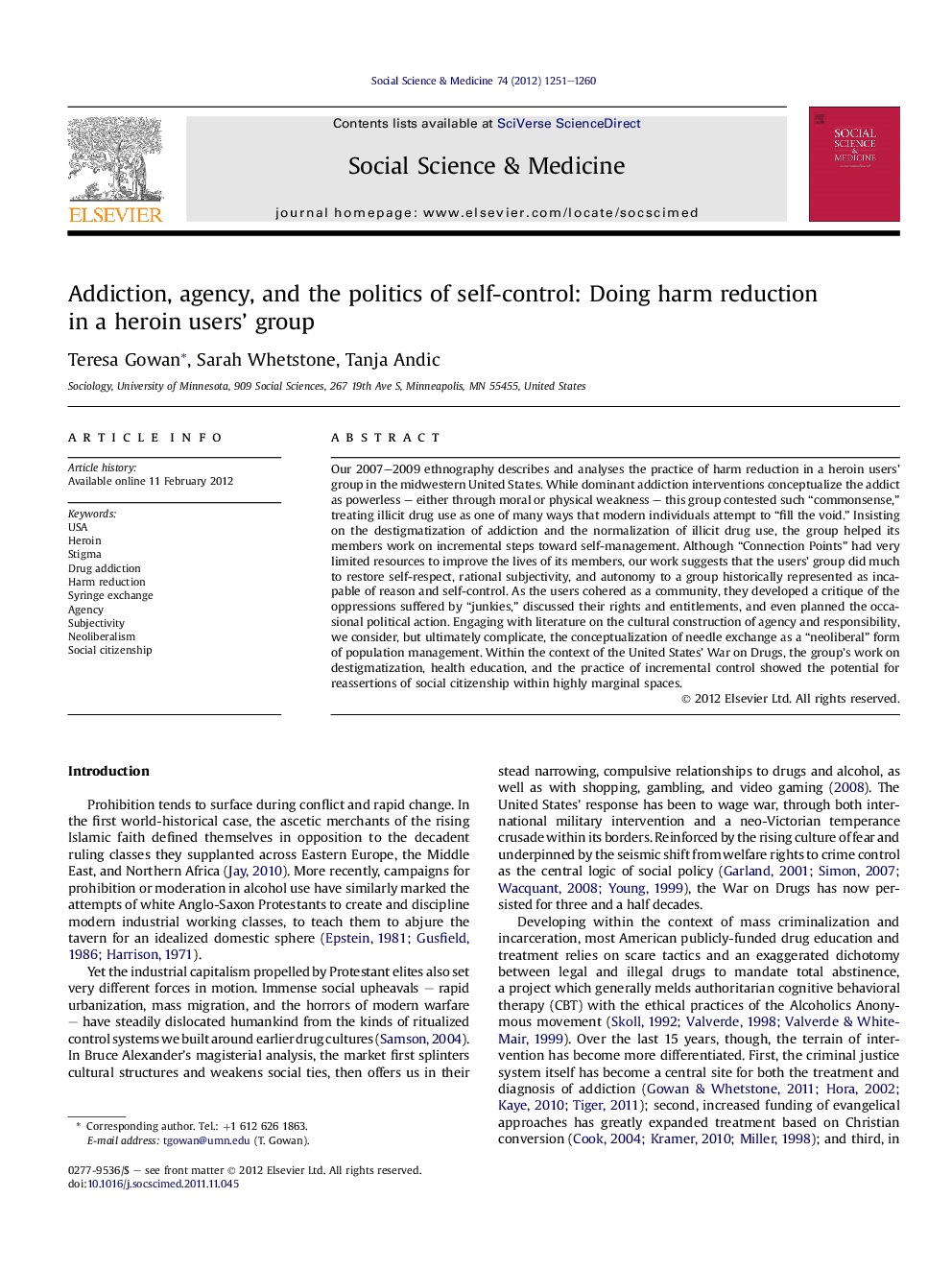| Article ID | Journal | Published Year | Pages | File Type |
|---|---|---|---|---|
| 952654 | Social Science & Medicine | 2012 | 10 Pages |
Our 2007–2009 ethnography describes and analyses the practice of harm reduction in a heroin users’ group in the midwestern United States. While dominant addiction interventions conceptualize the addict as powerless – either through moral or physical weakness – this group contested such “commonsense,” treating illicit drug use as one of many ways that modern individuals attempt to “fill the void.” Insisting on the destigmatization of addiction and the normalization of illicit drug use, the group helped its members work on incremental steps toward self-management. Although “Connection Points” had very limited resources to improve the lives of its members, our work suggests that the users’ group did much to restore self-respect, rational subjectivity, and autonomy to a group historically represented as incapable of reason and self-control. As the users cohered as a community, they developed a critique of the oppressions suffered by “junkies,” discussed their rights and entitlements, and even planned the occasional political action. Engaging with literature on the cultural construction of agency and responsibility, we consider, but ultimately complicate, the conceptualization of needle exchange as a “neoliberal” form of population management. Within the context of the United States’ War on Drugs, the group’s work on destigmatization, health education, and the practice of incremental control showed the potential for reassertions of social citizenship within highly marginal spaces.
► This case study of a heroin users’ group in the USA demonstrates the importance of destigmatization for successful health promotion. ► Explores key tensions between individualization and oppositional solidarity within the practice of harm reduction. ► Considers the conceptualization of needle exchange as a “neoliberal” form. ► Argues that a focus on destigmatization and incremental control creates the preconditions for assertions of social citizenship.
